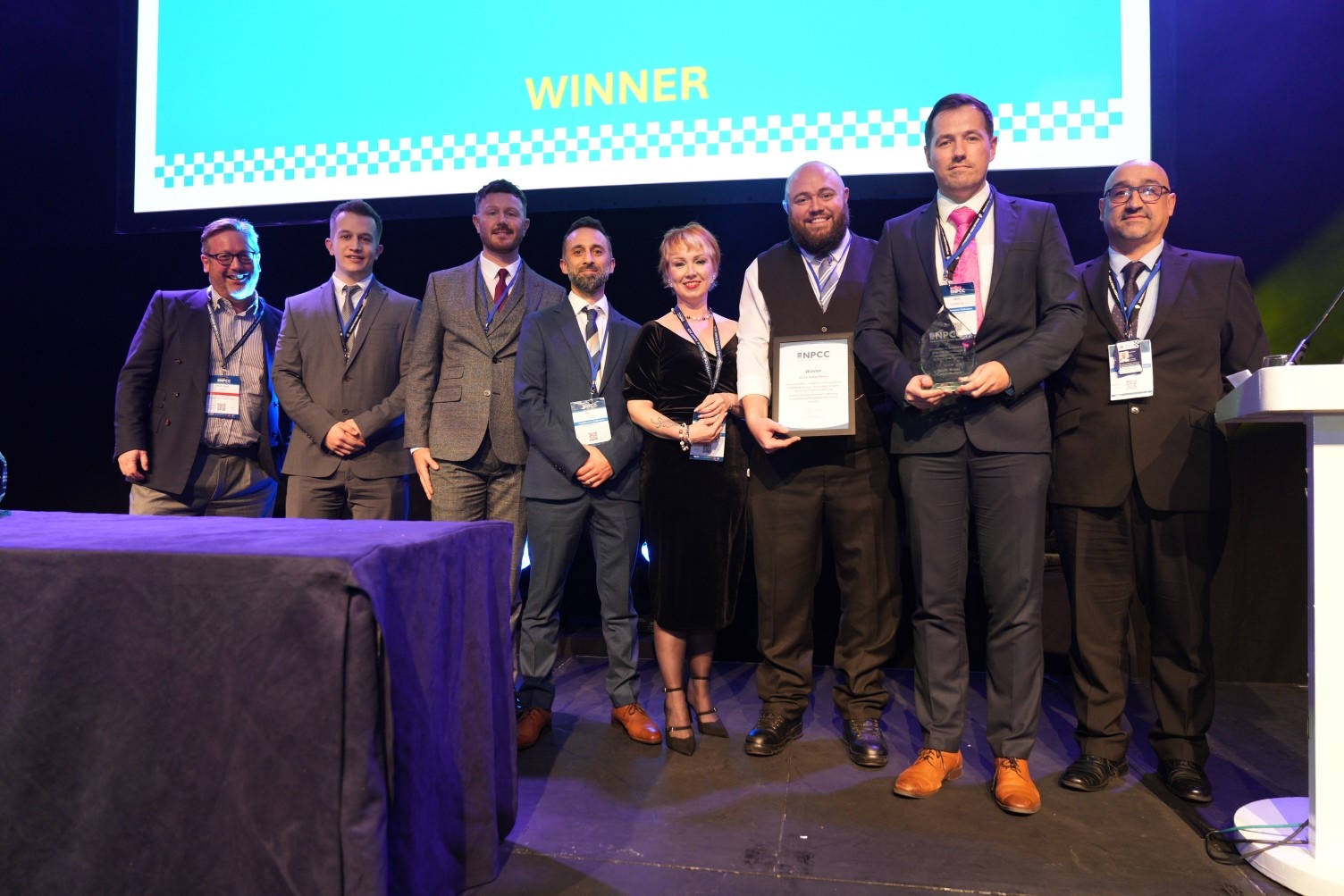South Wales Police’s pioneering use of facial recognition technology to help identify suspects and keep our streets safer has been recognised with a national policing award.
The operator-initiated facial recognition (OIFR) system, used by South Wales Police and Gwent Police, helps police officers to confirm the identity of an unknown person whom they suspect is missing, at imminent risk of serious harm or wanted, in circumstances when they’re unable to provide details, refuse to give details or provide false details.
OIFR can also be used on a person who has died or is unconscious allowing officers to identify them so their family can be traced quickly.
Its use was recognised with the gong for Innovation in Embedding Science, Technology, or Digital Solutions to Front Line Policing at the National Police Chiefs’ Council Innovation and Digital Summit last night. Forces across the country were recognised at the ceremony for a host of innovations which have helped support police work.
As an app embedded on police officers’ work-issue phones, OIFR has helped identify offenders who refused to disclose their details or provided false information.
This included a man found to have an outstanding European arrest warrant for 12 years for drugs supply and assaulting a police officer overseas, who was identified from a 13-year-old photo.
The OIFR app is only used overtly, and cannot be used covertly to ID people. Independent testing has also confirmed there is no identifiable bias on the grounds of race, gender or age.
South Wales Police Chief Constable Jeremy Vaughan, who is also NPCC lead for science and innovation, said:
“Our award winners embody the very best of policing and I would like to congratulate all of them for their work, innovation and dedication.
“Police reform has been a key theme at this conference – and this can only happen by recognising our people, promoting their excellence and evolving our service into one that embraces new technology to deliver the very best outcomes for our communities and our workforce.
“There is brilliant work happening across policing, and it is our responsibility as leaders to ensure we identify this innovation and ensure it has the maximum impact across every part of the country.”




